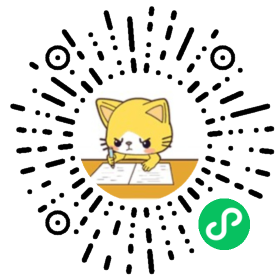【单选题】
如发现捆内整把缺少或把内短少( )以上者,应将原捆、原把票币原样保管,并立即将发现经过及原捆的冠字、号码、封捆时间和封捆员代号送交当地人民银行处理。 ___
A. 5张
B. 10张
C. 20张
D. 50张
查看试卷,进入试卷练习
微信扫一扫,开始刷题

相关试题
【单选题】
出纳人员责任事故错款哪种说法是正确的是:( ) ___
A. 短款报损
B. 短款按规定手续审批后报损
C. 以长补短
D. 长款归公、短款自赔
【单选题】
入库保管的已没收假币(券),应按照当地人民银行规定( ),并办好出库、交接手续,严防已没收假币(券)重新注入市场。 ___
【单选题】
法人机构收缴假币,应向持有人出具《假币收缴凭证》,并告知持有人如对被收缴的货币真伪有异议,可在( )工作日内向中国人民银行当地分支机构或中国人民银行授权的当地鉴定机构申请鉴定。 ___
【单选题】
营业日终,零币盒内的零币总金额不得超过人民币( )。 ___
【单选题】
能辨别面额,票面剩余二分之一(含)至四分之三(不含)以下,其图案,文字能按原样连接的残缺、污损人民币,法人机构应向持有人按原面额的( )兑换 ___
A. 全额
B. 一半
C. 四分之三
D. 四分之一
【单选题】
残缺、污损人民币持有人同意法人机构认定结果的,对兑换的残缺、污损人民币硬币,法人机构应当面使用专用袋密封保管,并在袋外封签上加盖( )戳记。 ___
【单选题】
残缺污损人民币,法人机构应向持有人按原面额全额兑换的必须能辨别面额,其图案、文字能按原样连接外,其票面剩余必须在( ) ___
A. 二分之一(含)至四分之三(不含)以下
B. 四分之一(含)到二分之一(不含)
C. 四分之三以上
D. 不到四分之一
【单选题】
现金整点标准中的捆紧,要求扎把的腰条应在票面的( )处扎紧;一捆票币用绳捆扎成双十字型后,用手提绳,绳索绷直,票币不移动为准。 ___
A. 二分之一
B. 三分之一
C. 四分之一
D. 五分之一
【单选题】
( )应根据机构营业使用现金情况灵活掌握机构的现金额度,确保营业机构每月的日均额度不超过核定限额。 ___
A. 会计主管
B. 现金管理员
C. 凭证管理员
D. 普通柜员
【单选题】
柜员库箱限额设置后,系统控制同一机构的柜员同一币种均执行统一限额,( )不受柜员库箱限额控制。 ___
A. 会计主管
B. 现金管理员
C. 凭证管理员
D. 普通柜员
【单选题】
柜员尾箱库存超过核定限额的,应及时调拨给( )。 ___
A. 会计主管
B. 凭证管理员
C. 普通柜员
D. 现金管理员
【单选题】
( )模式是指定辖内一家在人民银行具有独立提款权的法人机构,负责本市其他法人机构的现金供应。 ___
A. 委托代理
B. 市级代理
C. 专人代理
D. 独立
【单选题】
( )是指根据法人机构与客户的协议,客户交款时,采取与客户共同先将现钞封包交存,在法人机构共同清点入账的业务。 ___
A. 封包收款业务
B. 委托收款业务
C. 受托收款业务
D. 当面收款业务
【单选题】
柜员间现金调拨是指在同一机构内( )与普通柜员间的调拨。 ___
A. 主管
B. 会计主管
C. 现金管理员
D. 联行岗位人员
【单选题】
自助设备保险柜的钥匙和密码应( )。 ___
A. 专人管理、专人使用
B. 分管分用、严格保密
C. 双人分管,平行交接
D. 一人保管钥匙、一人管理密码
【单选题】
银行卡被自助设备吞没,银行卡应在( )工作日内(从吞卡日次日算起),凭本人有效身份证件及其他可以证明为银行卡持有者的材料到自助设备所属营业机构办理领卡手续。 ___
A. 20个
B. 30个
C. 45个
D. 60个
【单选题】
加入自助设备的现金应为从人民银行提取的原封新券或经过清分处理的钞票,也可加入经手工挑剔的无破损、无断裂、无透明纸粘贴、无褶皱及卷角等( )成新的现钞 ___
A. 6至7
B. 7至8
C. 8至9
D. 6至8
【单选题】
自助设备保险柜密码原则上每( )更换一次。 ___
【单选题】
自助设备吞没卡,持卡人应在( )(从吞卡日次日算起)办理领卡手续。 ___
A. 4个工作日内
B. 5个工作日内
C. 10个工作日内
D. 20个工作日内
【单选题】
自助设备吞没卡逾期未领的,由自助设备所属营业机构自逾期次日起( )剪角作废。 ___
A. 5个工作日内
B. 10个工作日内
C. 20个工作日内
D. 30个工作日内
【单选题】
中心金库现金库存额度应保证( )天正常营业的需求,并保持合理的券别结构 ___
A. 1-2
B. 1-3
C. 1-4
D. 1-5
【单选题】
营业机构柜员办理现金收付业务应做到笔笔自核,但现金存入人民币( )(不含)以上的,应换人卡把复核。 ___
A. 5万元
B. 10万元
C. 15万元
D. 20万元
【单选题】
被代理法人机构专人至少( )持现金支票随同押运人员到代理法人机构提取现金。 ___
【单选题】
审核缴款凭证时,凡发现凭证填写内容不全、涂改或有错误的,由( )重新填写。 ___
A. 柜员
B. 客户
C. 大堂经理
D. 其他人员
【单选题】
( )模式是指市级中心库在当地人民银行具有独立的提缴款权,负责辖内各法人机构的现金供应。 ___
A. 独立
B. 市级代理
C. 委托代理
D. 专人代理
【单选题】
通过将真人民币挖补、涂改、剪贴、拼凑、揭页等手段制成的人民币,属于( )。 ___
A. 伪造人民币
B. 变造人民币
C. 残缺人民币
D. 污损人民币
【单选题】
柜员收款业务点清细数操作中不正确的是( )。 ___
A. 款项未点清前不准与其它款调换
B. 按券别依次逐张清点细数并挑残
C. 清点中发现有误,立即返还客户复点
D. 款项多、缺的按原现金收款凭证金额多退少补或由客户重新填制现金收款凭证
【单选题】
下列叙述正确的是( )。 ___
A. 发现凭证填写内容不全、涂改或有错误的,可帮客户填写正确,再办理现金支付
B. 现金收入时,收款复核员的操作程序为复审缴款凭证→复点现金→现金入箱→签章退单
C. 现金细数未点清,不得将捆把的原封签、腰条丢掉,不得与其他款项调换或混淆
D. 一捆票币用绳捆扎成单十字型,用手提绳,绳套绷直,票币不移者为标准钱捆
【单选题】
中心库的备用钥匙由管库员、分管行长和会计管理部门负责人当面共同密封,加盖印章,办理登记签收手续,由( )入保险柜妥善保管 ___
A. 会计主管
B. 主管
C. 现金管理部门
D. 安全监保部门
【单选题】
法人机构中心库是指( )设立的由法人机构集中管理的金库,一般设在法人机构营业部. ___
A. 省联社
B. 派出机构
C. 法人机构
D. 营业网点
【单选题】
柜员收款业务,初点时应按下列操作程序办理( )。 ___
A. 核对总数、卡把过大数、点捆、点尾数
B. 核对总数、点捆、卡把过大数、点尾数
C. 卡把过大数、点捆、点尾数、核对总数
D. 点捆、卡把过大数、点尾数、核对总数
【单选题】
对于法人和其他组织办理单笔或当日累计人民币交易( )以上现金支取、现金票据解付及其他形式现金支取的,应当要求其填写《大额现金支取申请表》 ___
A. 10万元
B. 20万元
C. 50万元
D. 100万元
【单选题】
普通柜员间进行现金调剂时,由( )使用“0041柜员间现金/现钞调拨”交易,录入调拨金额等相关信息并进行配款。 ___
A. 调入柜员
B. 调出柜员
C. 调入柜员和调出柜员
D. 任意柜员
【单选题】
下列说法错误的是( ) ___
A. 清分包括机械清分和手工清分。
B. 机械清分是指通过自动化清分机具进行现金清分的处理过程。
C. 手工清分是由清分机构组织专门人员,对尚未配置清分设备或不宜采用清分设备清分的现金进行清点处理。
D. 金融机构临柜人员对收入现金进行手工挑剔、鉴伪后付出的行为属于手工清分。
【单选题】
“假币”印章为长方型印章,印章上半部分刻有“( )”字样。 ___
A. 假币
B. 假币收缴
C. 鉴定
D. 没收
【单选题】
银行业金融机构涉假冠字号码查询受理单位应向查询申请人以( )形式反馈查询结果 ___
A. 口头通知
B. 填制《人民币冠字号码查询结果通知书》
C. 邮件通知
D. 电话通知
【单选题】
查库是指本机构有权人或上级有权单位对机构库存情况和柜员库存情况进行清查核对,并详细登记查库情况的过程。 ___
【单选题】
查库时,管库员应始终在场,服从查库人员安排,但不参加清查库款。 ___
【单选题】
查库如遇柜员休班且库存超休班限额的,应择机补查,数额较大的(5万元以上),应立即清查。 ___
【单选题】
查库时要坚持大额现金开箱,所有现金移库检查,查库时不须留有记录。 ___
推荐试题
【多选题】
收费系统测试的内容主要涉及___等。
A. 数据处理、统计报表及打印记录测试
B. 闭路电视监视功能测试
C. 告警及导常处理功能测试验
D. 安全性及保密性测试
【多选题】
下面测试内容中,与光纤数字传输系统有关的测试项目有___。
A. 光接口及电接口测试
B. 抖动及误码测试
C. 保护倒换及语音提示功能测试
D. 接通率及及局间中继测试
【多选题】
低压配电中,配电线路的过电流保护包括___。
A. 短路保护
B. 过负荷保护
C. 接地故障保护
D. 电气火灾防护
【多选题】
低压配电中,直接防护包括___防护。
A. 绝缘
B. 阻挡物
C. 切断电源
D. 剩余电流保护
【多选题】
各类公路网运行监测与服务信息的业务数据,交换接口需支持以下那些模式___
A. 中间库模式
B. XML文件格式
C. 目录监测模式
D. Web服务模式
【多选题】
在隧道、特大桥等特殊路段监控系统中,除应具备常规监控功能外,还应具备功能。___
A. 数据存储
B. 照明控制
C. 消防控制
D. 通风控制
【多选题】
下列属于公路网数据传输、交换和控制安全性要求的是。___
A. 设备身份认证
B. 数据加密
C. 数据完整性保护
D. 访问控制
【多选题】
河南省高速公路收费系统应采取 控制。___
A. 计算机安全级
B. 网络安全级
C. 用户安全级
D. 互联网安全级
【多选题】
下列关于网络中OSPF 的区域(Area)说法正确的是?___
A. 网络中的一台路由器可能属于多个不同的区域,但是必须有其中一个区域是骨干区域。
B. 网络中的一台路由器可能属于多个不同的区域,但是这些区域可能都不是骨干区域。
C. 只有在同一个区域的OSPF 路由器才能建立邻居和邻接关系。
D. 在同一个AS 内多个OSPF 区域的路由器共享相同的LSDB。
【多选题】
在一台路由器上执行了如下命令: display ip routing-table 1.1.1那么对此命令的描述正确的是___。
A. 可以查看匹配目标地址为100.1.1.1 的路由项。
B. 可以查看匹配下一跳地址为100.1.1.1 的路由项。
C. 有可能此命令的输出结果是两条默认路由。
D. 此命令不正确,因为没有包含掩码信息。
【多选题】
SDH网络单元主要有。___
A. 同步光缆线路系统
B. 终端复用器
C. 分/插复用器
D. 同步数字交叉连接设备
【多选题】
光纤数字通信包括下列哪些特点。___
A. 容量大、频带宽
B. 损耗低
C. 可靠性强
D. 抗干扰性强
【多选题】
下面对同步数字系列技术SDH描述正确的是。___
A. SDH采用同步复用方式和灵活的复用映射结构
B. 从OSI 模型的观点来看,SDH属于网络层
C. SDH采用的信息结构等级称为同步传送模块STM-N
D. SDH具有很好的兼容性
【多选题】
下面哪些原因可导致光传输全部中断。___
A. 光缆线路中断
B. 临近电磁场的干扰
C. SDH传输设备故障
D. 光端机故障
【多选题】
光缆的护层常用聚乙烯作内层,外层用铝带或塑料,目的是为了___
【多选题】
光纤通信是由____、______和_______三个基本单元组成的。___
A. 光发射机
B. 光纤
C. 光接收机
D. 光放大器
【多选题】
通信支撑网由 组成___
A. 同步网
B. 公共信令网
C. 业务网
D. 网络管理网
【多选题】
通信电源由 构成___
A. 交流供电系统
B. 直流供电系统
C. 防雷接地系统
D. 电源管理系统
【多选题】
根据我省高速公路光缆结构形式,光缆线路在野外长途塑料管道中敷设时,下列哪项排流线设置原则正确。___
A. 10m深处的土壤电阻率ρ10<100Ω·m的地段,可不设排流线。
B. 10m深处的土壤电阻率ρ10<100Ω·m的地段,设一条排流线。
C. 排流线的连续布放长度应不小于2KM
D. 排流线的连续布放长度应不大于2KM
【多选题】
架空光缆可选用下列哪此防雷保护措施。___
A. 光缆架挂在长途明线的上方。
B. 光缆吊线间隔接地。
C. 雷害特别严重地段敷设架空地线。
D. 光缆架挂在长途明线下方。
【多选题】
以下说法正确的是 ___
A. 在设备上,更换同类型光板,槽位相同,更换后无需再网管上重新下发业务
B. 在设备上,更换同类型光板,槽位相同,更换后需要再网管上重新下发业务
C. 更换NCP时,备用NCP的IP不会自动与主用NCP的IP同步
D. 在网管上拨光纤不会影响正在运行的业务
【多选题】
在E300、U31网管上创建网元时,以下哪些属性若填写错误,在网元创建成功后还可以修改___
A. 设备类型
B. 设备硬件版本
C. 网元名称
D. 网元IP
【多选题】
E300、U31网管上可以配置以下哪几种时钟源类型___
A. 外时钟
B. 内时钟
C. 线路抽时钟
D. 支路抽时钟
【多选题】
某光板的光接口类型是L-4.1,已知其最小过载点是-8dBm,最差灵敏度是-28dBm。在以下测到的收光功率中,哪些是不合适的___
A. -30dbm
B. -3dbm
C. -10dbm
D. -25dbm
【多选题】
关于网管上插入告警,以下说法正确的是___
A. 在本端插入告警,AIS告警就在本端上报
B. 在本端插入告警,AIS告警会在对端上报
C. 插入AIS告警只是强制修改了开销字节,不表示线路实际产生了告警,所以不会导致保护倒换或影响业务
D. 插入AIS告警可能导致业务保护倒换
【多选题】
机房的长期工作环境温度、湿度范围正确的是___
A. 25℃ 50RH%
B. 35℃ 70RH%
C. 20℃ 55RH%
D. 0℃ 48RH%
【多选题】
以下关于单板维护注意事项,说法正确的是___
A. 当单板从一个温度较低、交干燥的地方拿到温度较高、交潮湿的地方时,至少需要等30分钟以后才能拆封
B. 单板在不适用时要保存在防静电袋内
C. 在接触设备时必须佩带防静电手环,并将防静电手环的另一端良好接地
D. 光线路板上未使用的光口一定要用防尘帽盖住
【多选题】
以下哪些操作会影响业务或导致业务保护倒换___
A. 对正在使用的业务通道进行误码离线测试
B. 对正在使用的业务通道进行误码在线测试
C. 对业务通道进行环回
D. 插入MS-AIS告警
【多选题】
与通道保护相比,复用段的保护的特点是___
A. 使用于分散型业务
B. 需要使用APS协议
C. 容量大
D. 倒换时间长
【多选题】
以下说法正确的是___
A. 单板上电瞬间红绿指示灯交替闪烁,表明单板正在自检,上电正常
B. 单板自检完成后,如果单板绿灯闪烁而红灯亮,表明自检完成,但有告警
C. 若发现单板自检后红、绿指示灯同时闪烁的情况,可能是单板无用户程序,需在线下载用户程序
D. 以上说法都不正确
【多选题】
下面关于SDH设备光板OL4 L-4.2描述正确的是___
A. 该光板的传输速率为622M
B. 该光板的传输速率为2.5G
C. 该光板为长距光板,最大可支持80KM
D. 该光板为短距光板,最大可支持40KM
【多选题】
在通信传输网络中,传输速率可以支持2.5G的设备有哪些___
A. S325
B. S330
C. S360
D. S385
【多选题】
对于通信电源上电下电的操作过程中,操作正确的有哪些___
A. 设备上电时,首先要确认设备的硬件安装和线缆布放完全正确,设备的交流输入符合要求,设备内无短路现象;随后将电源分配箱市电空开置于“ON”
B. 在市电上电前,要确保通信设备电源板开关为“OFF”,待市电上电完成后,再将通信设备各电源板开关置于“ON”
C. 设备下电时,先将通信设备各电源板开关置于“OFF”,随后将电源分配箱空气开关置于“OFF”
D. 待设备下电完成后,需关闭机房对设备的供电回路开关
【多选题】
在日常光板维护注意事项中,说法正确的是___
A. 光线路板上未用的光口需要用防尘帽盖住
B. 清洗尾纤插头时,需使用无尘纸蘸无水酒精小心清洗,也可使用普通的工业酒精、医用酒精或水
C. 更换光线路板时,需先拔掉光线路板上的尾纤,再拔光线路板,禁止带纤插拔单板
D. 更换光线路板时,如果机房环境良好,可以不带防静电手环进行单板的插拔
【多选题】
PTN是一种新型的分组传送技术,PTN相对SDH设备的优势有哪些___
A. 支持时间同步
B. 支持端到端通道配置
C. 支持完善的QOS功能
D. 支持时钟同步
【多选题】
安全事故处理的原则有___。
A. 事故单位未受到处理不放过
B. 事故原因未查清不放过
C. 事故责任人未受到处理不放过
D. 事故未制定整改措施不放过
E. 事故有关人员未受到教育不放过
【多选题】
互通立交夜间施工具备哪些安全管理设施___。
A. 白天施工应设置的安全管理设施
B. 施工区频闪等等警示灯具
C. 施工照明
D. 通信联络工具
【判断题】
ETC车道应7×24小时不间断运行,ETC车道系统发生严重故障时,应在4小时内响应、24小时内修复。
【判断题】
ETC车道系统发生其他一般故障应在48小时内修复。
【判断题】
MTC 出口车道应包含非现金支付卡有效性、车卡绑定以及黑名单查询等3项基本判定流程。



